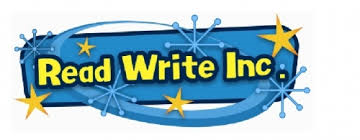EYFS at St Margaret's Infant School

What is EYFS?
The Early Years Foundation Stage (E.Y.F.S.) is the stage of education for children from birth to the end of the Reception year.
It is based on the recognition that children learn best through play and active learning.
How do we learn in EYFS?
The ways in which the child engages with other people and their environment - playing and exploring, active learning, and creating and thinking critically - underpin learning and development across all areas and support our children to remain effective and motivated learners.
At St Margaret's Infant School we value each child as a unique individual. We recognise that children develop and learn in different ways and at different rates. We build positive relationships with the children by being sensitive and responsive to the children's needs, feelings and interests; consistent in setting clear boundaries and being supportive of the children's own efforts and independence.
We value the importance of our environment and strive to achieve a stimulating environment that enables high quality learning. We offer stimulating and open-ended resources, rich learning opportunities through play and playful teaching and support children to take risks and explore.


Characteristics of Effective Learning
There are three Characteristics of Effective Learning: Playing and exploring, active learning and creating and thinking critically. Research has shown that children learn best when they are playing and exploring; when they are motivated to keep on trying and when they can have their own ideas. Learning in each class will look very different. We take into account each child’s level of development and provide their next step targets through current interests and play based learning.Areas of Learning and Development
Areas of Learning and Development
Within the theme of Learning and Development there are seven areas. These are split into ‘Prime’ and ‘Specific’ areas.
Prime areas are fundamental, work together, and move through to support development in all other areas.
The Prime areas are:
•Personal, Social and Emotional Development
•Communication and Language
•Physical Development
Specific areas include essential skills and knowledge for children to participate successfully in society.
The Specific areas are:
•Literacy
•Mathematics
•Understanding the World
•Expressive Arts and Design
Our Learning
.jpg?width=1920&height=1080&scale=LIMIT_MAXSIZE)
Maths Fun
We have a rich mathematical environment and we provide opportunities for children to use and apply the maths skills they thay have leant in taught session in their play. We will sing number rhymes and songs and focus on numbers that are personal to children, for example, their age, house number and sibling’s ages. We provide learning opportunities which develop counting and ordering skills up to 10 and beyond. We will be encouraging children to subitise, count, order and match objects to given numbers through ways which engage and interest the children. We will also be exploring numbers all around us in the environment and encourage you to help children 'spot' numbers all around us too. We discuss 'What do you see?' and 'How do you see it?' to encourage the children to explain their maths learning.
The links below will take you to useful website which explore mathematical concepts for the Early Years.
Read Write Inc.

We will be continuing to learn new sounds in our read, write, inc. lessons. This will help us to improve our reading and writing. Your child will be mixed with children from other Reception classes for this lesson. Your child may be taught by a different teacher for this lesson or they may stay with their own class teacher. We will continue to practice writing the sounds we have learned with 'here we go' lines and we will be reading and building simple words.
You can help us at home by practicing our sounds with us, reading our reading books and helping us to write our names with 'here we go' lines.
Please click on the following link for further information and resources to support your children in their reading and writing skills through the Read, Write Inc programme.
Handwriting Rhymes
 The children have already begun learning the correct pronunciation of sounds through the RWI program and are enjoying exploring sounds in words through their play. Information has been shared with parents to support how we teach reading and the different types of books our children will be bringing home. Click on our parents guide to RWI and early writing below.
The children have already begun learning the correct pronunciation of sounds through the RWI program and are enjoying exploring sounds in words through their play. Information has been shared with parents to support how we teach reading and the different types of books our children will be bringing home. Click on our parents guide to RWI and early writing below.





.jpg?width=320&height=240&scale=LIMIT_MAXSIZE)


